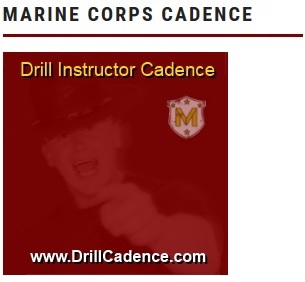
So you have just completed serving your 3-4 years (or 20 plus years) in the military and it is now the time to start preparing yourself for the big departure. Actually, about 12 months before your end of service, I would recommend that you start preparing yourself for the transition ahead. There are a lot of good things to look forward to when you leave the military, but proper prior planning will certainly help you avoid some of the pitfalls that may occur.
Military Services
The military offers many good services and programs to the transferring service member. All of these programs have a common goal – that is to prepare you for life on the outside. When you leave the military, it can be quite a cultural shock. For a lot of people (including myself), it was a reality check, going from good teamwork, military family and close ties among each other, to the civilian world where it becomes a free-for-all. It can be hard on military members to re-adjust to the civilian way of life. Take advantage of all your military separation classes. These classes will fill you with great knowledge, from resume writing, to job interview skills, and even some post-military social skills that you will need to re-attain in your daily life.
A good example of that is terminology. The military instills in you a lot of terminology and acronyms. When you get back to the civilian world, some of these terms are nowhere to be found. The transition classes offer great knowledge on how to set yourself up for success post military life, from job boards, to retirement plans and education benefits. Also, study up on your veterans benefits, as these are a huge help for transitioning, and you want to make sure that if you earned the benefit, you are able to utilize them when needed.
(Scroll down to read more.)
Advertisement (Marine Corps Boot Camp Film Series)
For more information, visit www.DarkDawnMovie.com.
Adjusting To A Civilian Pace
You get trained and instilled in your head that you need to be here at this time, and there at that time on a regimented schedule. However, once you get back to civilian life, all of that changes. If you happen to be on time, you are considered a great worker, because a lot of the civilian work force has the slow pace attitude and you will see people that are late all the time for work, or are always calling in sick. As a new employee with prior military experience, it can really be tough on you to see that all the teamwork and companionship you had in the military might be gone. Do understand that not all civilian jobs are that way, and you may get lucky enough to transition into a good company that keeps its standards high, or even another government job. In those cases, it would be an easier transition for you as the teamwork and companionship are still seen as a good thing.
What Do You Want To Do?
When you start your transition period, you really need to think about what you want to do with your life. The military decides your day to day routine. However, when you get to the civilian world, you decide your day to day life. For some people, this can be challenging. For example, if you joined the military right out of high school and served twenty years, all you have ever known is the military way.
You may want to see what you need in order to enroll in college and start working towards your degree or career goal. Start looking at your finances, how much money you have saved up, the type of retirement the military will provide (if any), and financial benefits you will earn while in school. Ask yourself how long you have before you need to be up and working on a new job in order to keep your life going. How much of a pay cut will you be taking? For enlisted members (E1-E3), it is usually not much of a pay cut. But if you are an E-4 or higher, be ready for a reality check. You might now only be making $10 per hour, and get stuck in a part time job. So all of these things are very important to be looking at before getting out.
Veterans Affairs And Medical
Make sure to explore all your benefits prior to getting out. Each state has a list of benefits that you can enjoy, along with the federal benefits that you earned. So I highly recommend visiting the VA rep before getting out.
Lastly, medical is another huge item on the ticket. The military takes care of you WELL. When you leave the military, the days of just showing up to your doctor are over. You will be making appointments months in advance, waiting to see doctors. You will also be paying a lot more for medical services than you did while in the military. Be sure to get your separation physical and also get copies of all your medical records.
So as you can see, transitioning from the military to the civilian world can be a tough challenge and a very stressful . However, you can help yourself by taking advantage of classes offered by the military and also some of the items I listed above to get yourself ready for that inevitable day when you leave the military.
Joshua Kelly is a 13-year United States Navy Veteran. Joshua holds a Bachelor’s Degree in Natural Science and Math. Along with several military decorations, Joshua was certified as a Community College of the Air Force Instructor. Joshua is currently self-employed with Dakota Weather Consultants.
“I am passionate about the military way of life and also the self-employed way of the future, and of course, the weather. You will find me, every day, running my weather consulting firm when I am not spending time with my family. I enjoy sharing information by writing to help others prepare themselves and learn from my experiences”. Joshua Kelly







